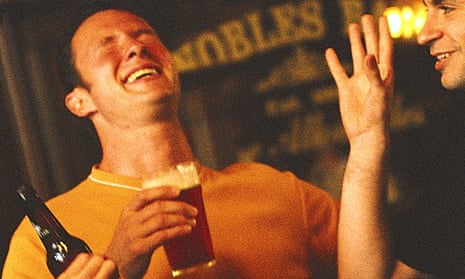What are we supposed to be doing?
A young man asked me this the other day, on the campus of Rutgers University in New Jersey, about the role of men in stopping rape.
I speak to a lot of young women at colleges across the United States this time of year, but I speak to a lot of young men, too. And the vast majority of college-age guys and twenty-something men I meet are engaged and smart about women’s issues – men, too, are horrified by sexual violence. Men don’t think rape is OK, or funny, or something to be taken lightly. Many men have witnessed (or experienced) domestic or sexual violence firsthand; these are issues that have touched – and hurt – their lives as well.
So please understand that when I say this, I say it with deep respect and empathy for your real-life experience:
Men, you need to do more. Maybe you don’t think you’re supposed to help stop rape – maybe you think that’s up to women. Or maybe you don’t know where to start.
Here’s how: 99% of you are great guys, but too many of you insist on pretending otherwise. I see you on Facebook, saying you were “raped” by a difficult standardized test. I see you on YouTube, posting that Tosh-inspired video of men “lightly touching women’s stomachs” and running away. I hear you, on campus, calling women “sluts”, or remaining silent when your friends do. I watch, at the bar, as you posture as if these behaviors make you more of a man. (Or at the very least, prevent you from being called a pussy, or a bitch, or – worst of all – a girl.)
You are better than this. And I have a sneaking suspicion that you know that already.
Whenever you tell a rape joke, you may think everyone else just assumes that you don’t really think it’s funny. But that’s not necessarily true. Because if there’s a potential rapist around you, which is always a possibility, you’re essentially telling them that what they do is normal. Funny, even. You may not think there’s a survivor of sexual violence around, but that is even more likely, and you just made her – or him! – feel awful. I’m pretty sure these are not outcomes you want to be a party to.
You may remember the rape case that went viral in Steubenville, Ohio. There’s something about young people, drinking, social media, football and violence that seem to make people pay attention. There was one young man who testified to walking in on the attack of a young woman at a party – to videotaping his teammate penetrate her in a car – and not doing anything about it. “I didn’t know exactly what rape was,” he said. This same teen had taken away keys from a drunk friend earlier in the night. We are woefully uninformed about sexual assault, but even if this young man didn’t understand that penetrating an unconscious woman is rape, I cannot believe he didn’t know that it was deeply wrong.
You know better than this, already. And if you know to protect your friends from driving drunk but not to stop those same friends from raping women, you should know that you can do more.
On Friday morning, President Obama announces the latest part of the White House’s campus sexual assault reform campaign: a new project aimed at men on campus, called “It’s On Us”, encouraging them to intervene. I am sure it will help (though I wish it wasn’t being announced on a Friday afternoon). But I also find it profoundly depressing that young men need the President of the United States to get them to do what they already know is needed, and what is just, and step up on this issue.
I know that you are constantly being told that you need to be tough, that boys don’t cry, that however many girls you hook up with – that that’s somehow an indicator of your masculinity. I imagine the standard is suffocating, that putting on a guise of impenetrable “manliness” every day can be exhausting. I am sorry for that; it is truly unfair. But your silence – or complicity – in the face of so much sexual violence, objectification and sexism does not make you any tougher or cooler, nor contrarian. It just makes you part of the problem.
Why not be the best version of yourself?
And try to imagine the other side. Imagine how different your life would be if you were expected to live in fear of sexual violence all the time. If you were expected to wear certain “safe” clothes, to never walk alone at night in public – to run with your keys in your hand. Imagine if you couldn’t have a cocktail at the bar because if you did – and then you neglected to take one of these measures and happened to be attacked – you would get blamed for getting raped for having a cocktail.
I hear from you on campus and even online, that conversations about rape culture and the prevalence of sexual assault on campus sometimes makes you feel as if it’s you men who are the problem.
But a lot of you are already speaking up and intervening, even when it’s difficult – even when your friends roll their eyes and walk the other way. I’m sure I’m not the only woman who is grateful for that. But I ask you: can’t you do a little more? Not just because women need all the help we can get, but because, deep down, I think you want to.
If we could all just stand to be a little bit braver and act with a lot more urgency, we might not need to ask what men should be doing. Because it would be obvious. And it would be done.

